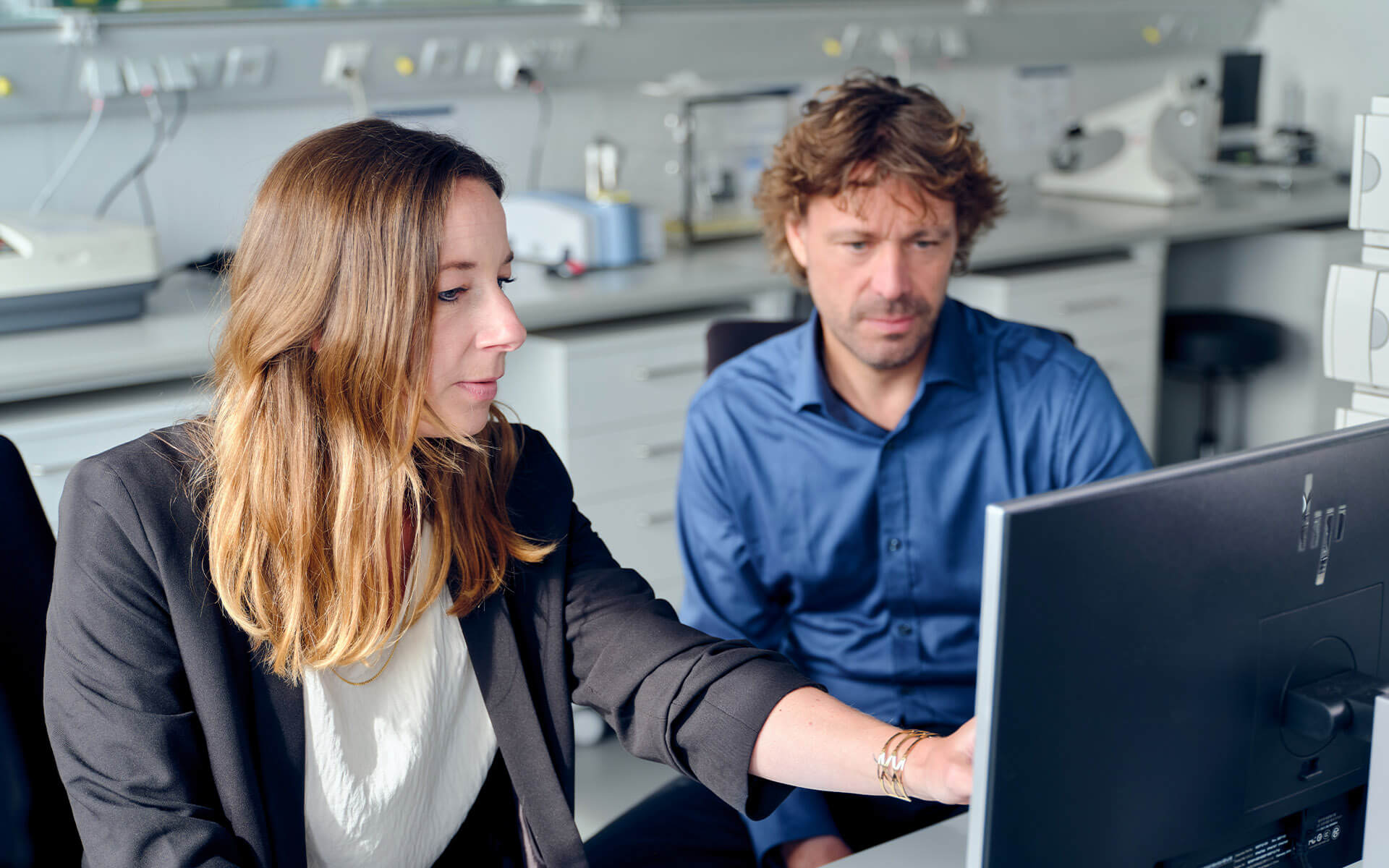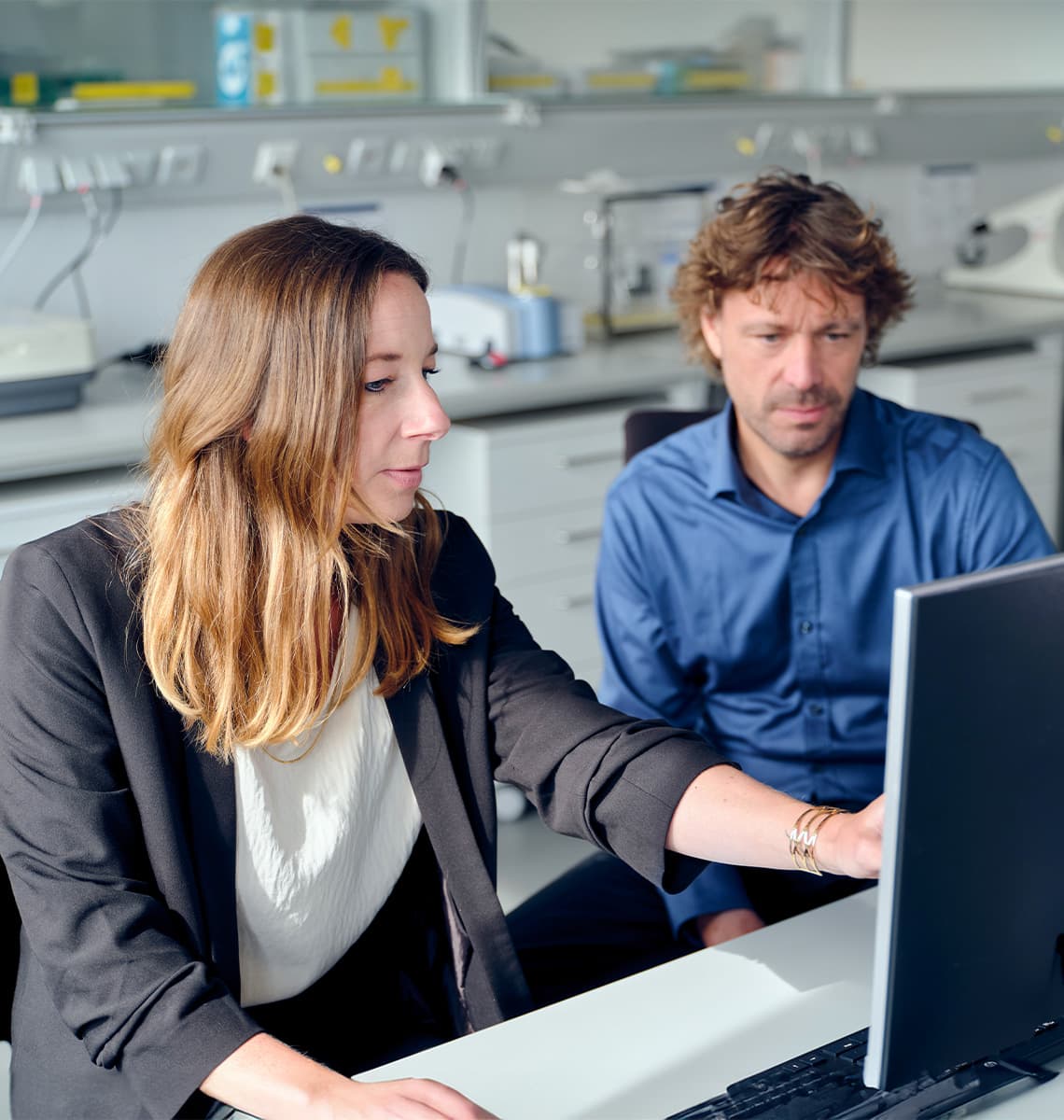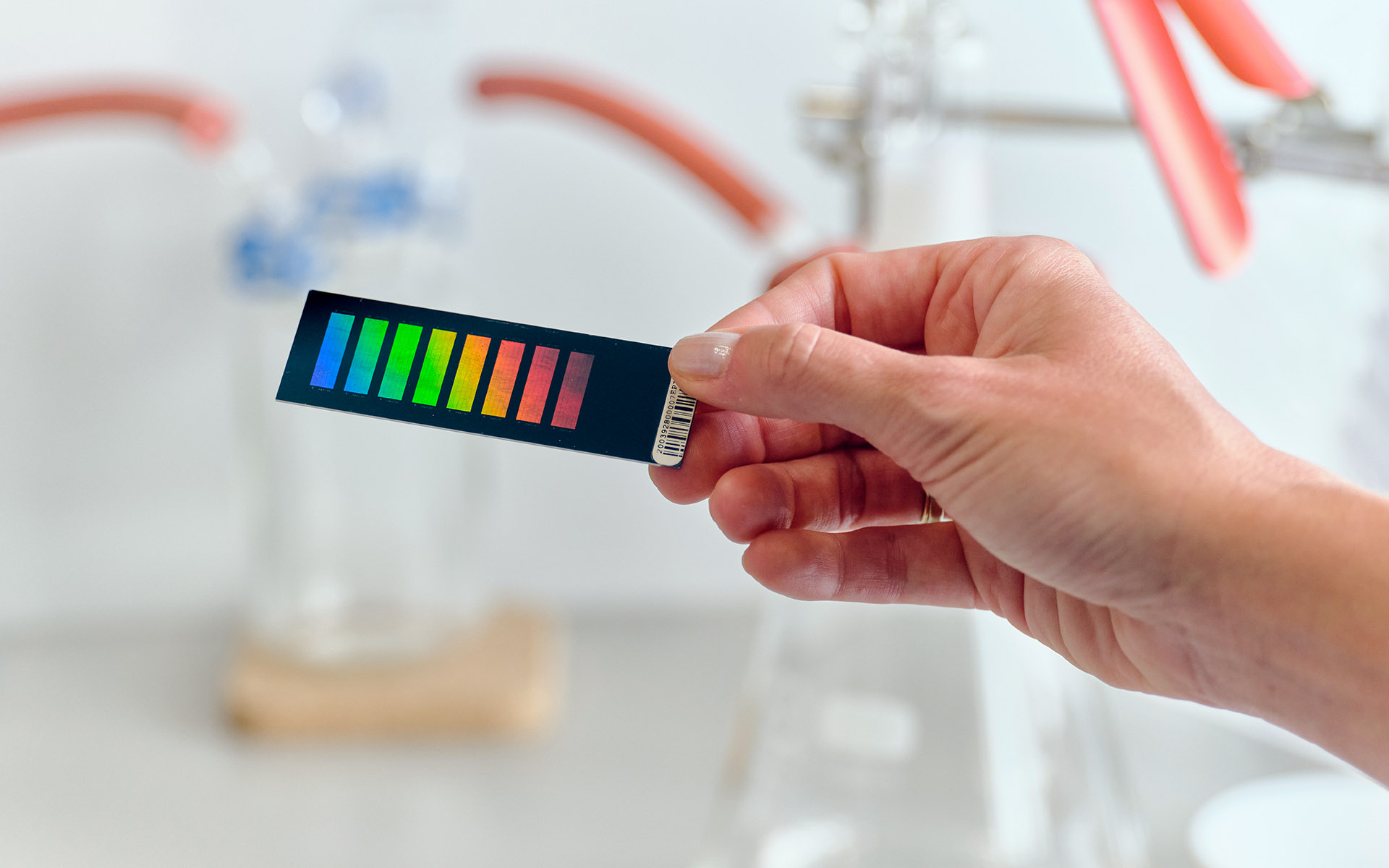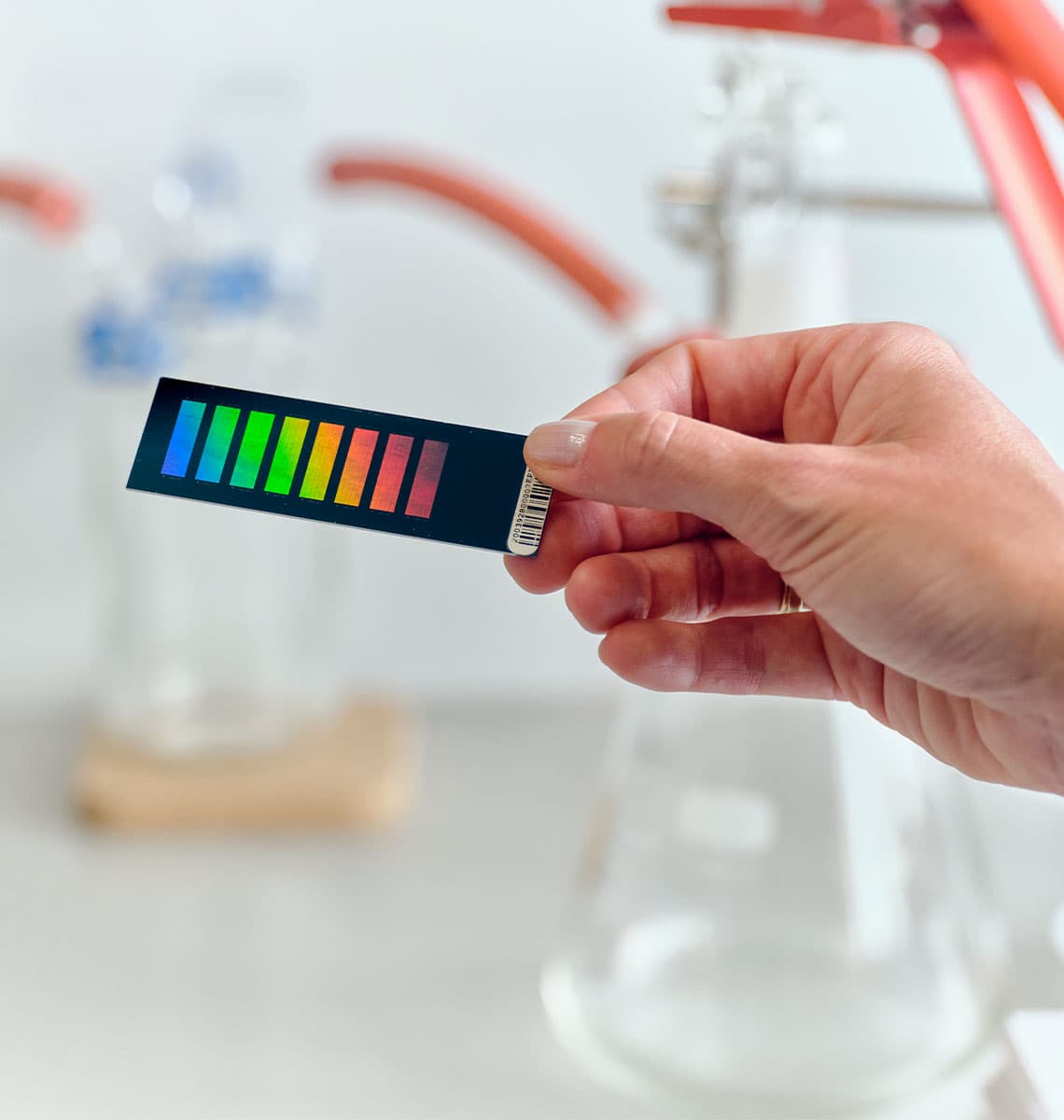

Epigenetics
Turning back
Turning back
the skin’s
the skin’s
“age clock”
“age clock”
Gene reactivation
Looking young into old age is something many people dream of while knowing it is not possible. But research shows that how we age is by no means predetermined. The assumption that the aging process is solely genetic is also wrong. This is because the appearance of our skin is influenced by many external factors: diet and exercise, stress and sleep patterns, sun exposure and lifestyle, and many other aspects. “And since our skin cells ‘use’ genes – for example to renew and repair themselves – these external factors also have an effect on the activity of the genes. They can even block or silence genes,” explains Dr. Marc Winnefeld, Head of the Applied Skin Research Department at Beiersdorf.
Beiersdorf labor skin aging
> 1,000
skin samples analyzed
850,000
methylation sites measured
> 50,000
substances and extracts investigated
Pioneers of epigenetics
The good news is that blocked and silenced genes can be reactivated – and thus improve the appearance of the skin again. Exactly how this works is the subject of the research field of epigenetics – a discipline that has been making great strides since the early 2000s.
Beiersdorf is one of the pioneers of epigenetic skin research. Since 2008, an interdisciplinary team of 20 specialists has been looking into epigenetic changes to the skin as it ages. The goal: to use the individual epigenetic pattern to find out which blockages contribute to skin aging and how they can be resolved.




New evolutionary stage
“In recent years, we have analyzed skin samples from more than 1,000 people and measured over 850,000 methylation sites per person,” says Dr. Elke Grönniger, Head of the Skin Aging Laboratory at Beiersdorf. “With the help of these methylation sites, we can find out which blockages are associated with skin aging.” The findings were incorporated in an “age clock” of skin cells. This is an algorithm that helps to find skin care solutions with epigenetic active ingredients for skin rejuvenation. Around 50,000 substances and extracts have now been scrutinized to identify and qualify natural active ingredients for skin rejuvenation.
Many scientists associate epigenetics with a new evolutionary stage in anti-aging because it makes it possible to fundamentally rejuvenate skin cells, not just compensate for individual deficits. “Research is now within touching distance of a substantial epigenetic rejuvenation of the skin,” says Dr. Marc Winnefeld.
Two questions answered by DR. CATJA PRYKOP

Dr. Catja Prykop
Vice President Early Innovation
How does Beiersdorf succeed in translating promising research results into products?
Bringing together people with different expertise and experience and forming interdisciplinary teams is crucial, which is why we always strive for integrated and cross-departmental collaboration. The Early Innovation department, which was set up around two years ago and has around 20 employees, makes a significant contribution in this regard: It analyzes customer needs and which new, relevant technologies can be developed in order to incorporate the research results into an innovation roadmap and thus strategically prepare for market introduction.
When will Beiersdorf launch the first products based on the findings of epigenetics?
We are planning to launch the first product with corresponding active ingredients in the near future. We will then gradually introduce further products to the market and integrate them into our various ranges.
Given the pace of research, we assume that there will be numerous product innovations in the coming years.
Their active ingredients will come ever closer to the goal of not only stopping the aging process, but also actually rejuvenating skin cells.
